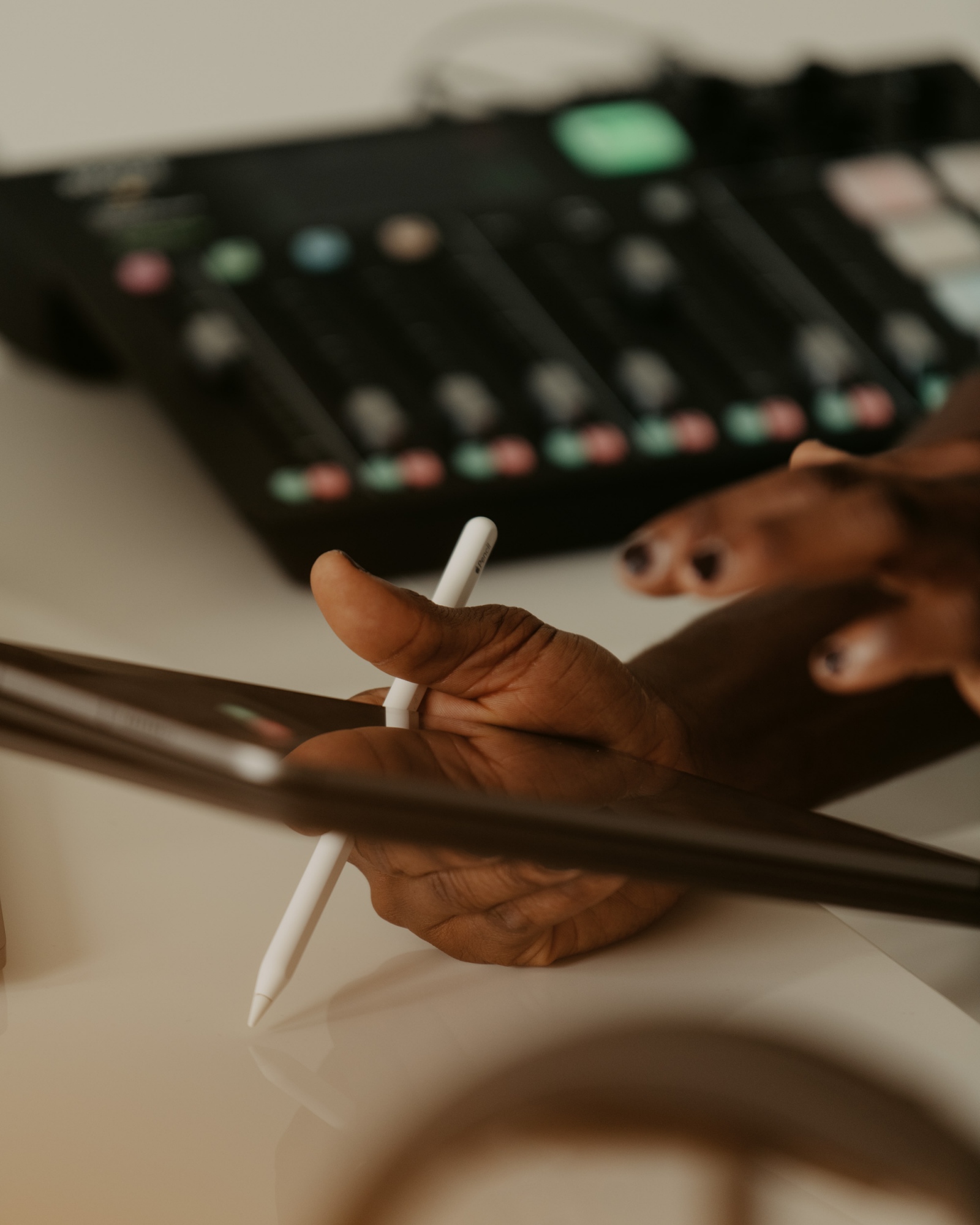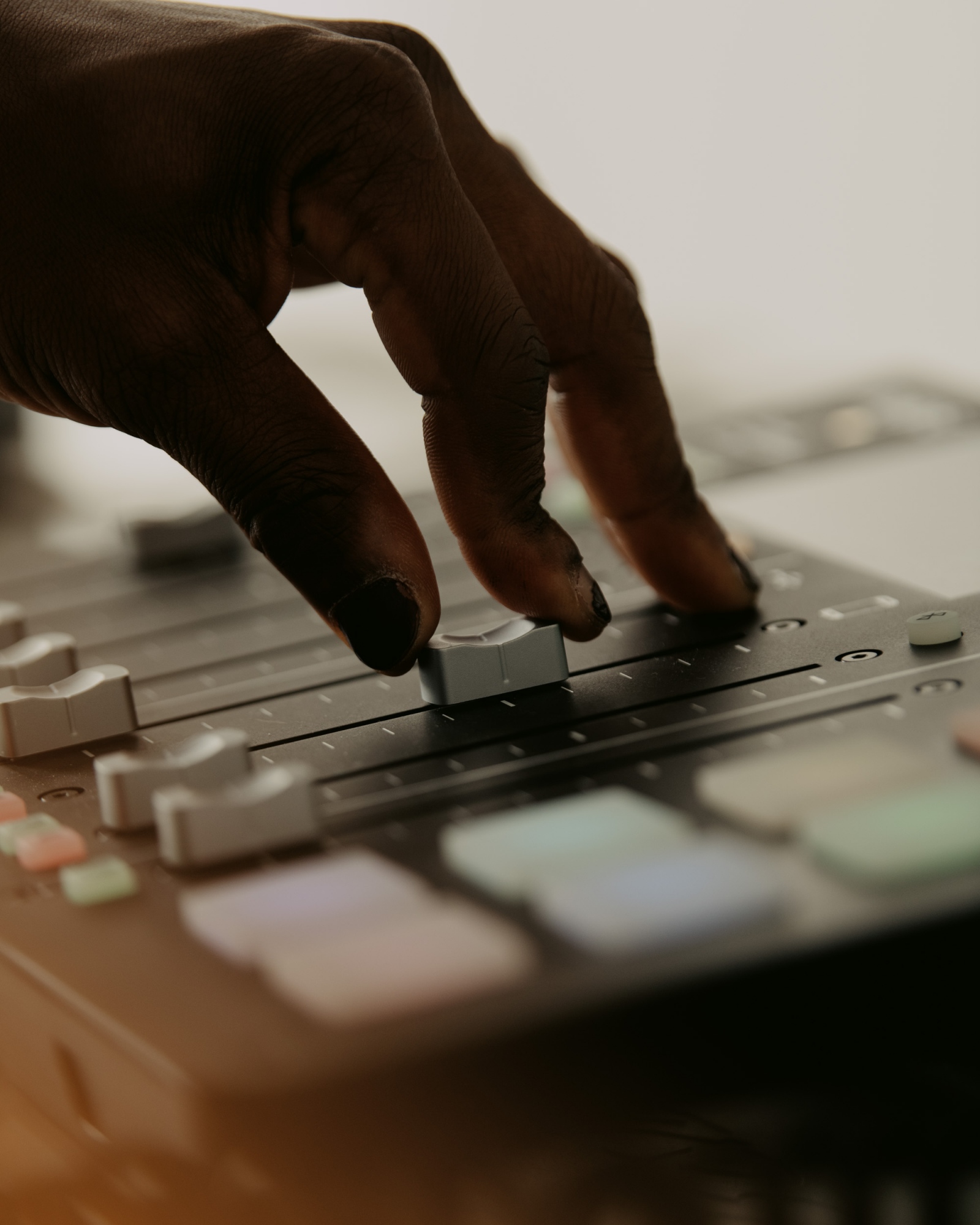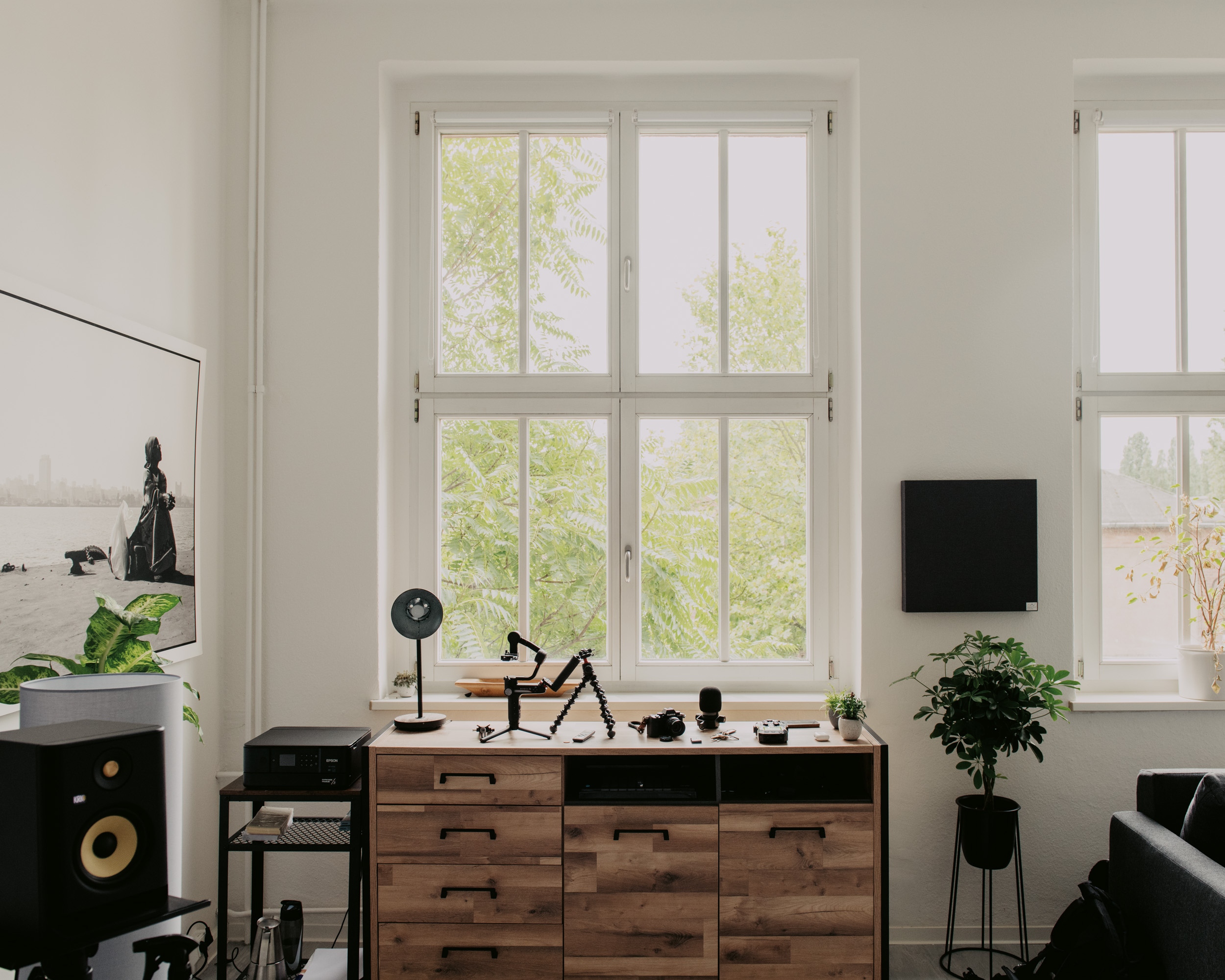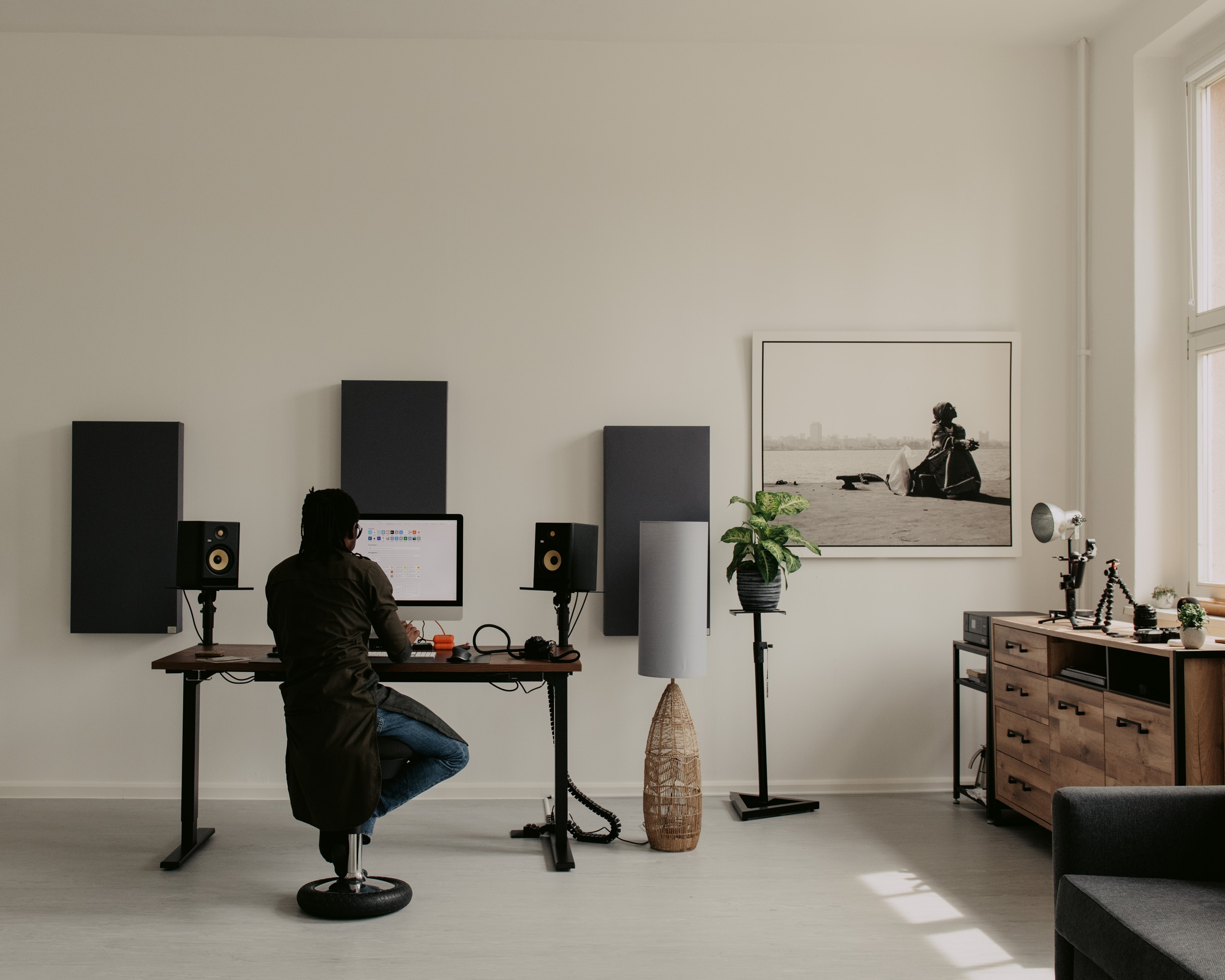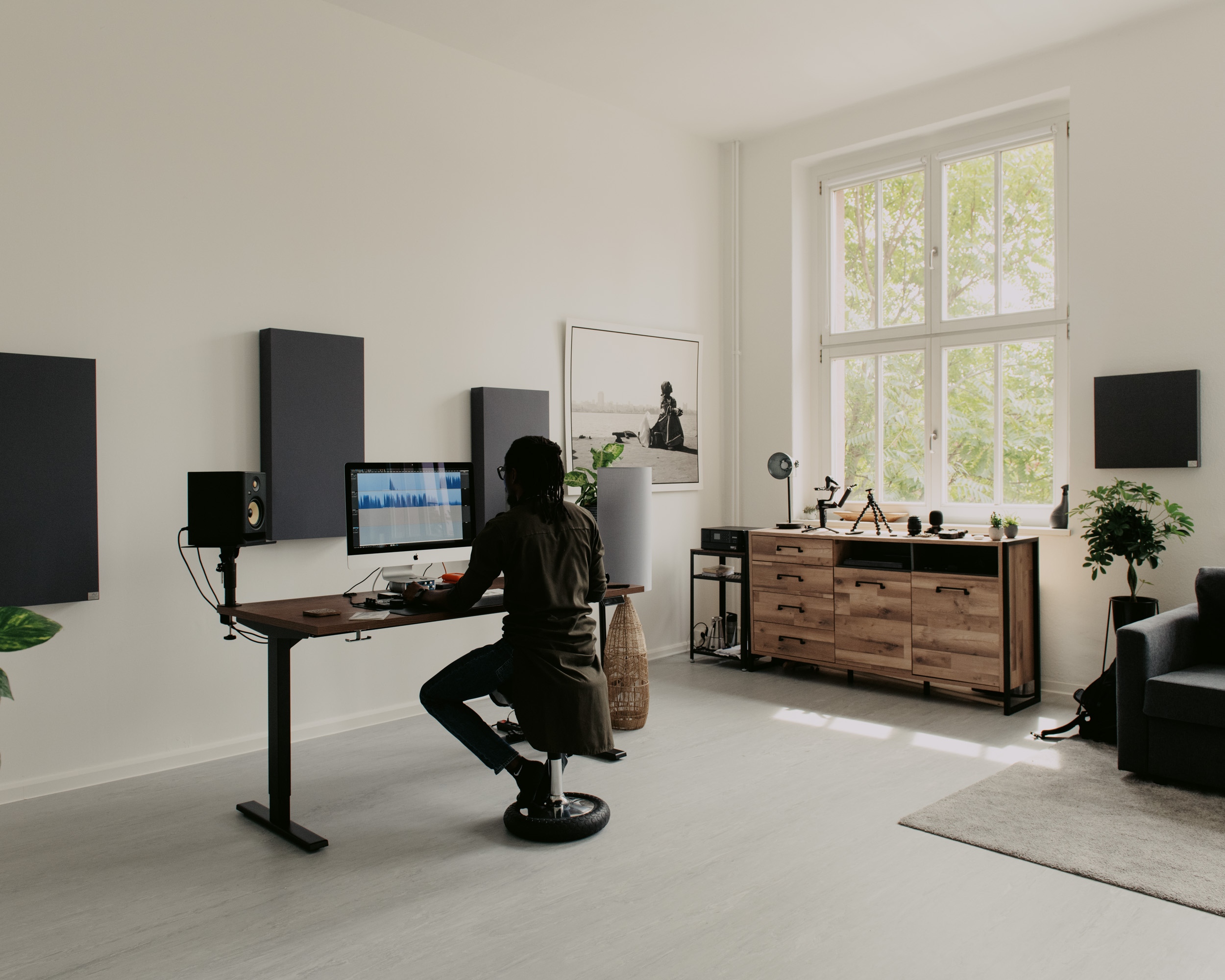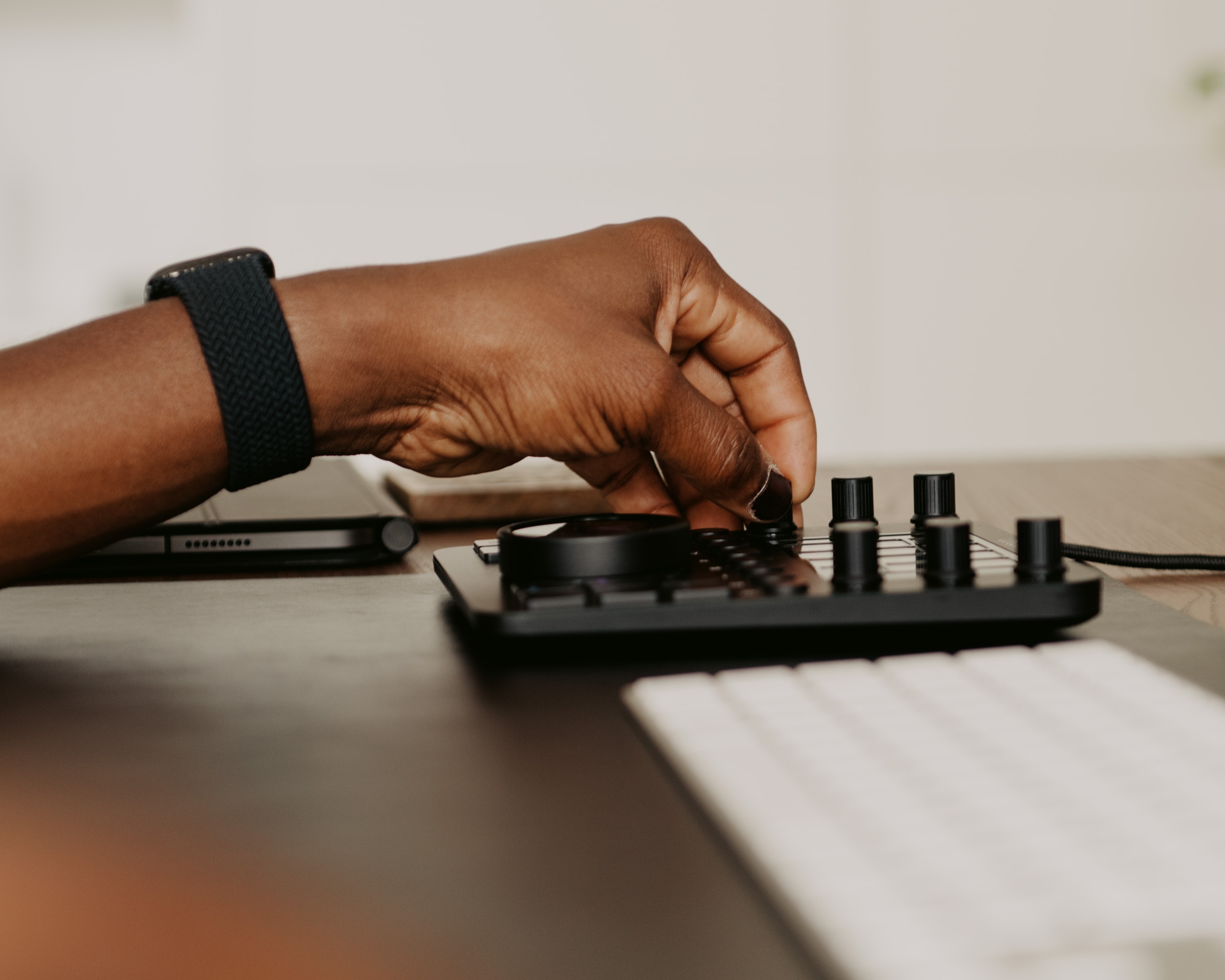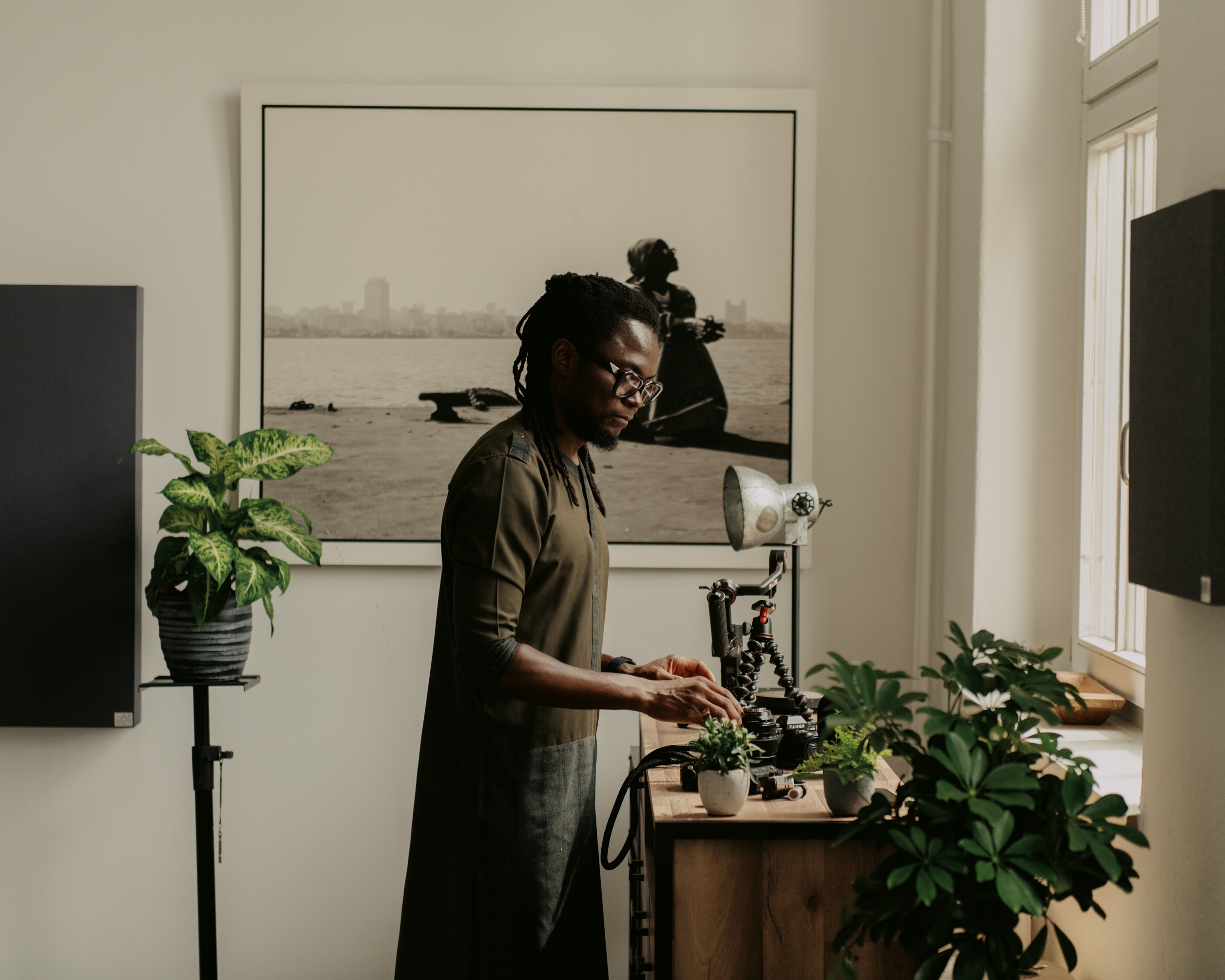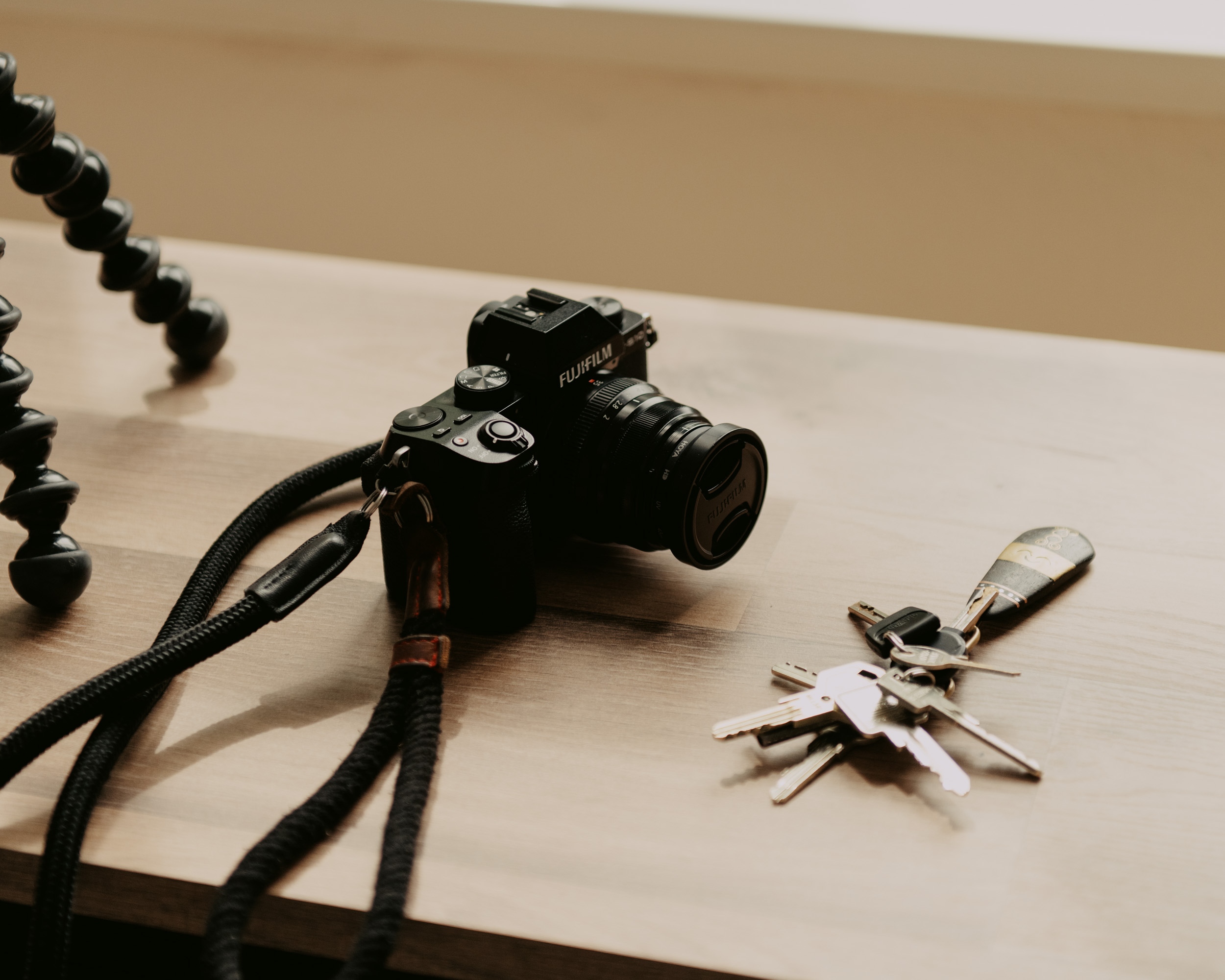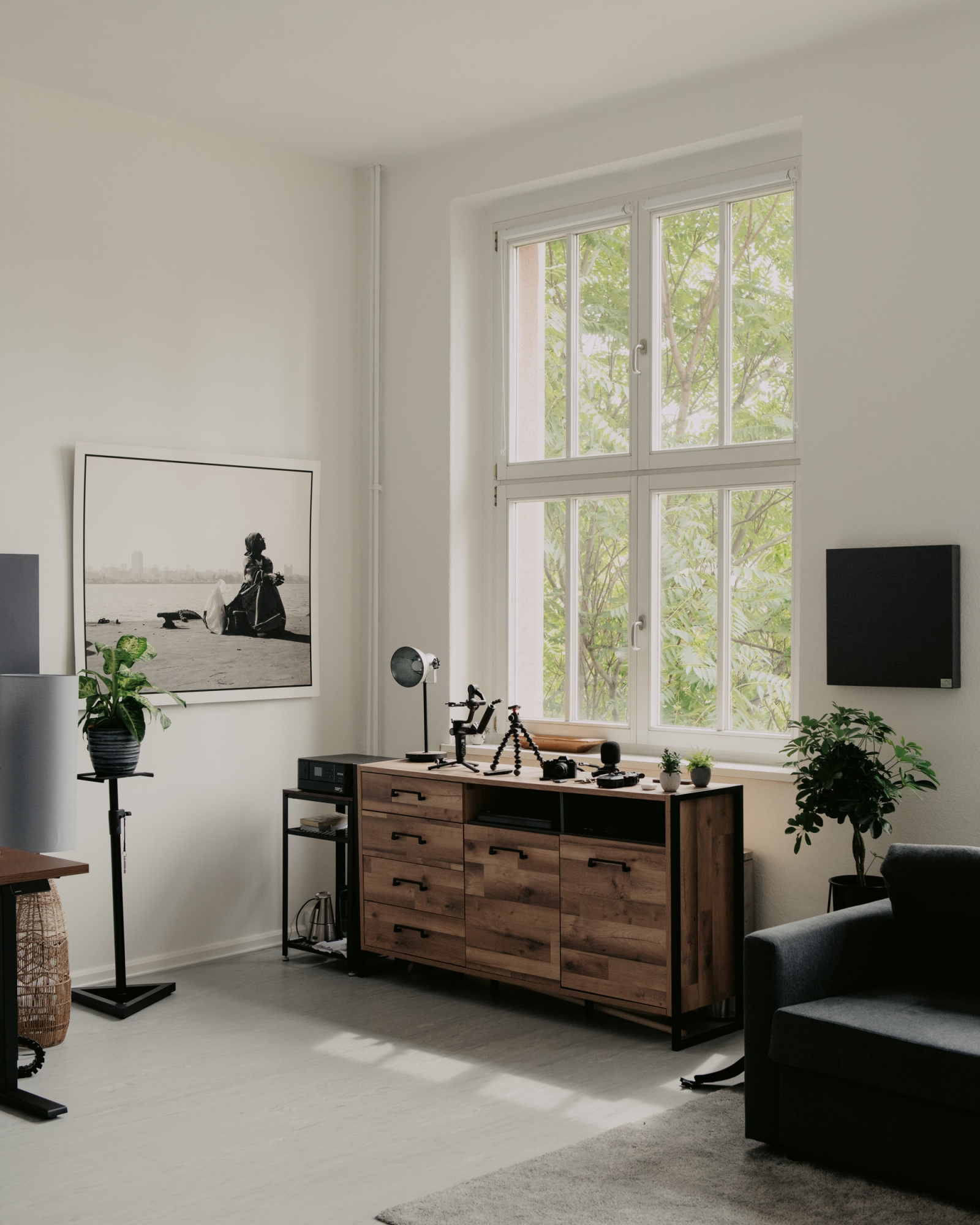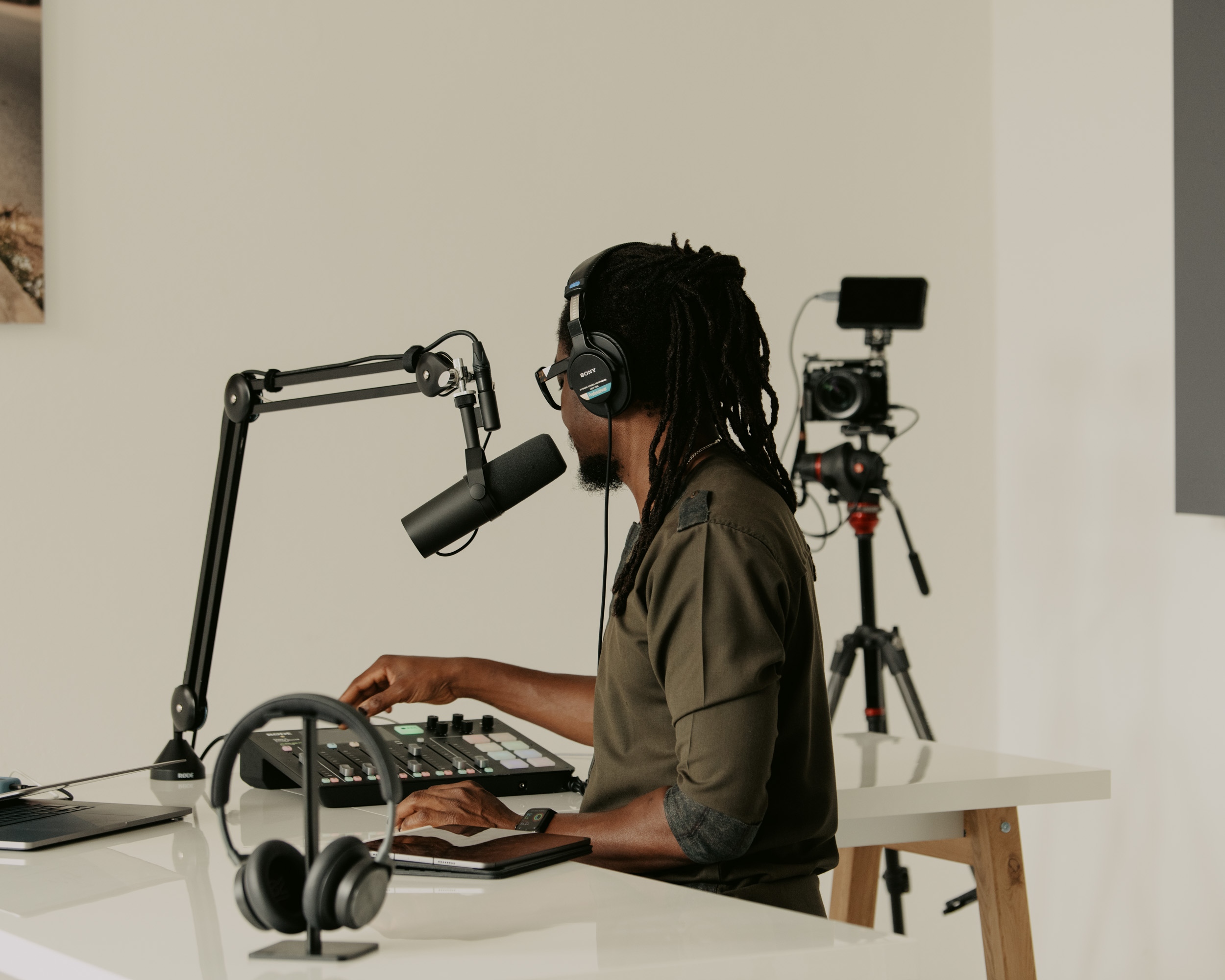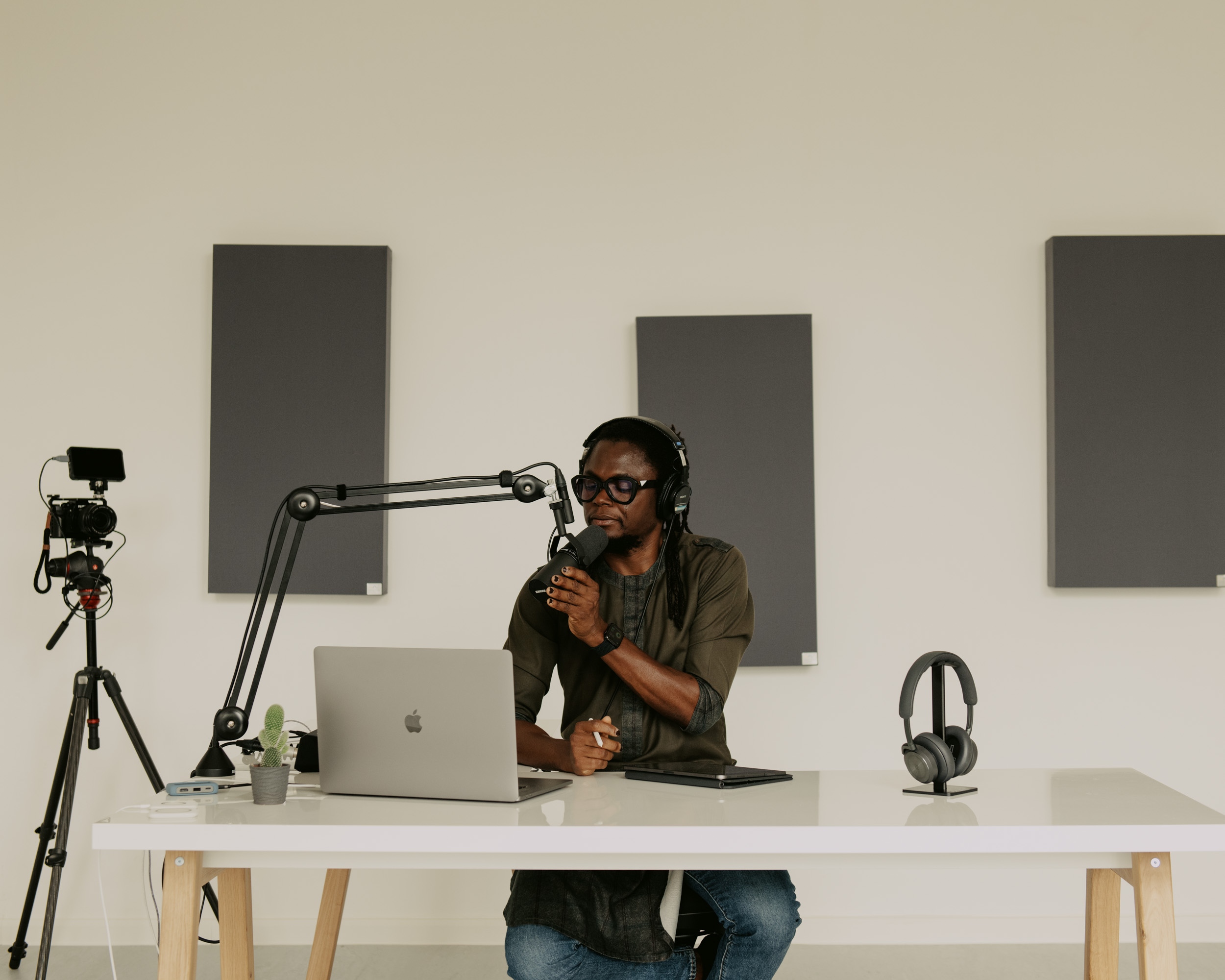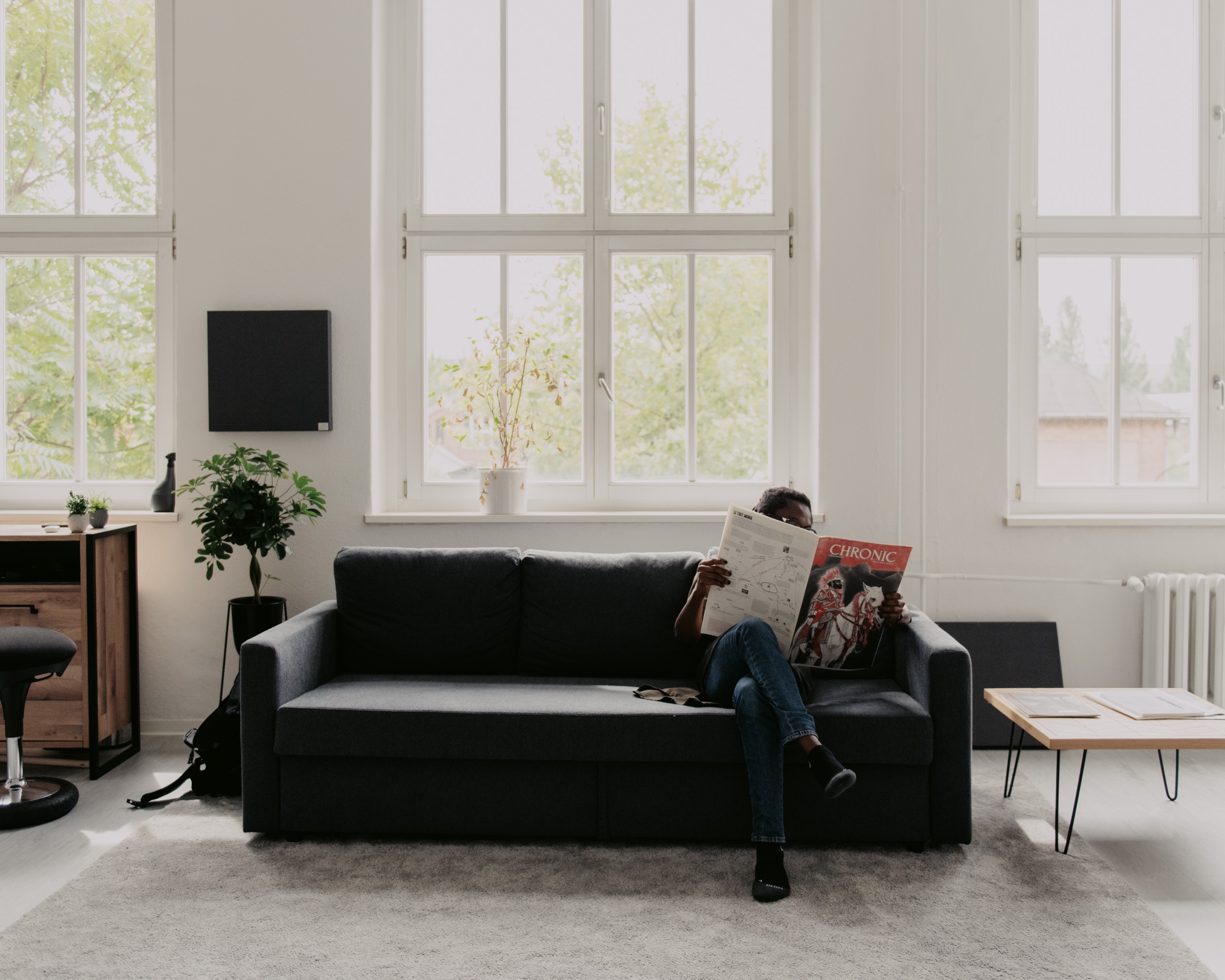Atelier E.K Okereke: The Berlin Studio Space
Atelier E.K Okereke is the Berlin studio space of the Artist Emeka Okereke. The studio, set up in June 2021, is in the outskirt district of Weisßensee Berlin and will serve as the European outpost/annex. Through the studio, Emeka Okereke hopes to deepen and consolidate the multiple strands of artistic projects indicative of the evolution of his artistic practices. Emeka Okereke‘s disposition is one of growth and self-reinvention - explored through his multidisciplinary projects.
Thus, Atelier E.K Okereke will serve as a space for the research and elaboration of ideas, thoughts, and collaborative encounters cutting across artistic and multimedia projects in Photography, Film, Writings (Essays, Non-fiction works, Poetry), Sound/Music Production, and podcast Projects.
Atelier E.K Okereke is a space for the performance of togetherness and exploring distances between “here and elsewhere.” Works emanating from the studio space are only placeholders for the processes of human encounters. The studio is a space for articulating the process, the journey, inscribed in the complementary relationship between the subjective and the collective.
Okereke strongly believes that for any artistic work or practice to be relevant in our time, it must presuppose some, if not all, of the following components of human experiences: acknowledgment, encounter, conversation, and intervention.
Atelier E.K Okereke holds the above as a signpost as we journey through and within our beautiful world, whose light is dimmed in many corners.
All photos ©Robert Rieger
Thus, Atelier E.K Okereke will serve as a space for the research and elaboration of ideas, thoughts, and collaborative encounters cutting across artistic and multimedia projects in Photography, Film, Writings (Essays, Non-fiction works, Poetry), Sound/Music Production, and podcast Projects.
Atelier E.K Okereke is a space for the performance of togetherness and exploring distances between “here and elsewhere.” Works emanating from the studio space are only placeholders for the processes of human encounters. The studio is a space for articulating the process, the journey, inscribed in the complementary relationship between the subjective and the collective.
Okereke strongly believes that for any artistic work or practice to be relevant in our time, it must presuppose some, if not all, of the following components of human experiences: acknowledgment, encounter, conversation, and intervention.
Atelier E.K Okereke holds the above as a signpost as we journey through and within our beautiful world, whose light is dimmed in many corners.
All photos ©Robert Rieger
Collaborations
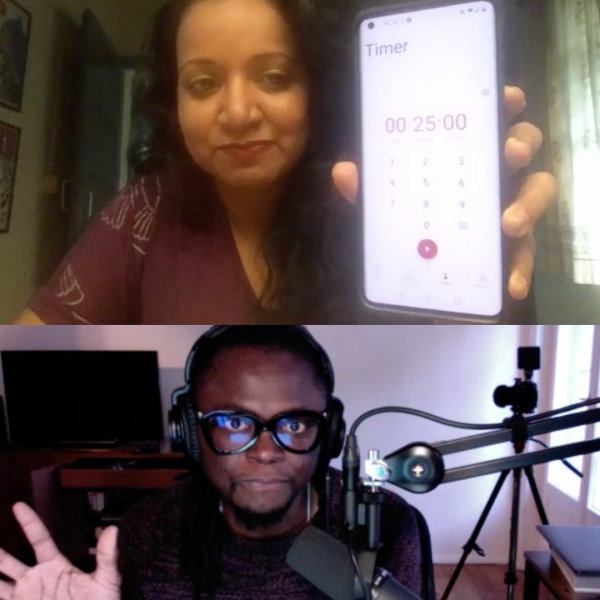
PROJECT HYPHENATE (2020 – ONGOING)
In 2020, Emeka Okereke embarked in a long durational collaborative project with dear friend and anthropologist Mathangi Krishnamurthy. The project builds on the synergy of their first encounter in Chennai, India where Krishnamurthy lives and works. During the months of 2020 and 2021, they developed the project through virtual performative conversations and exchanges. As at 2021, they have completed a collaborative essay to be published as part of the Radical History Review with the Duke University Press, USA.
Emeka Okereke & Mathangi Krishnamurthy
In 2020, Emeka Okereke embarked in a long durational collaborative project with dear friend and anthropologist Mathangi Krishnamurthy. The project builds on the synergy of their first encounter in Chennai, India where Krishnamurthy lives and works. During the months of 2020 and 2021, they developed the project through virtual performative conversations and exchanges. As at 2021, they have completed a collaborative essay to be published as part of the Radical History Review with the Duke University Press, USA.
"As an artist duo, we find ourselves in a unique position to leverage precisely the aspects of this moment that are also of artistic interest to us: geographical distance and differences in space and time; differently inflected experiences of the pandemic; and a simultaneous witnessing of self and other. In this scenario, we investigates the question of the human through conversation and friendship played out in an intentional fashion via production, exchange, and dialogue.There are three propositions that underlie our submission: one, that the relationship between the photographer and the ethnographer is one of overt tension, and covert collaboration. We each have stake in our rendition of the world, and in each of our professions, the cultural turn post the sixties has necessitated closer attention to the processes of witnessing and narrativizing. To this extent, we intend to take advantage of this existing tension to push each of our boundaries. The second is the idea of friendship—a hallowed conception dear to many communities of scholars and artists—one that we explore in a manner that demands a rigorous disciplinary process in this instance. Lastly, our project is very much of the pandemic. Even as each of us struggles with the quotidian as much as the existential, an engagement of the kind we suggest is no longer an option. To take it all in, in this moment, no matter how partial and incomplete, has become an ethical imperative."
Emeka Okereke & Mathangi Krishnamurthy
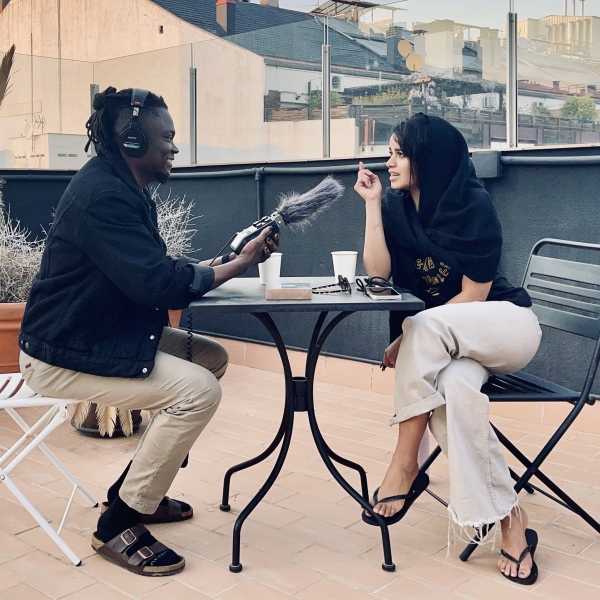
NZUKOTA (2020 – ONGOING)
In the context of the residency program at the Pol & Grace Hotel organised by The Over Art, Emeka Okereke invited Reem Alfahad to collaborate with him on a project titled Nzukota.
"This project aims to conjure junctures and spaces for the enactment of togetherness. Togetherness not only as means but of itself, an end. One can also think of this as assuming positions from which to insist on the distinction between a universal world and a world “in-common”. As Achille Mbembe noted in Necropolitics, a universal world presumes something complete in which, for other things to be whole and have any semblance of belonging, is to be included or integrated. A world in-common is a world in relation. It is a world that feeds off the alternating currents of duality. As such, our first project was to embark on a durational exploration of the concept of home as being “here and elsewhere” – a proposal expounded by the French-Martinican critic, Edouard Glissant in his seminal work, Poetics of Relation
In Barcelona, we kicked off our reflection from the vantage point of the Mediterranean sea. A sea as historic as it is volatile. We recorded sounds of sea waves hitting the concrete dykes at the shore as we did our conversations – impromptu as they come. We had both chance and curated encounters that, in turn, formed the basis for further reflection. Central to our free-flowing exploration is the emphasis on the word “encounter”. It is a word we did not take for granted, neither was it limited to human relations. Yet, it soon became apparent that through this project, we are venturing into the volatile distance sandwiched between “here and elsewhere”, to inhabit it in our way and consequently, demystify it."
Emeka Okereke & Reem Alfahad
In the context of the residency program at the Pol & Grace Hotel organised by The Over Art, Emeka Okereke invited Reem Alfahad to collaborate with him on a project titled Nzukota.
"This project aims to conjure junctures and spaces for the enactment of togetherness. Togetherness not only as means but of itself, an end. One can also think of this as assuming positions from which to insist on the distinction between a universal world and a world “in-common”. As Achille Mbembe noted in Necropolitics, a universal world presumes something complete in which, for other things to be whole and have any semblance of belonging, is to be included or integrated. A world in-common is a world in relation. It is a world that feeds off the alternating currents of duality. As such, our first project was to embark on a durational exploration of the concept of home as being “here and elsewhere” – a proposal expounded by the French-Martinican critic, Edouard Glissant in his seminal work, Poetics of Relation
In Barcelona, we kicked off our reflection from the vantage point of the Mediterranean sea. A sea as historic as it is volatile. We recorded sounds of sea waves hitting the concrete dykes at the shore as we did our conversations – impromptu as they come. We had both chance and curated encounters that, in turn, formed the basis for further reflection. Central to our free-flowing exploration is the emphasis on the word “encounter”. It is a word we did not take for granted, neither was it limited to human relations. Yet, it soon became apparent that through this project, we are venturing into the volatile distance sandwiched between “here and elsewhere”, to inhabit it in our way and consequently, demystify it."
Emeka Okereke & Reem Alfahad
